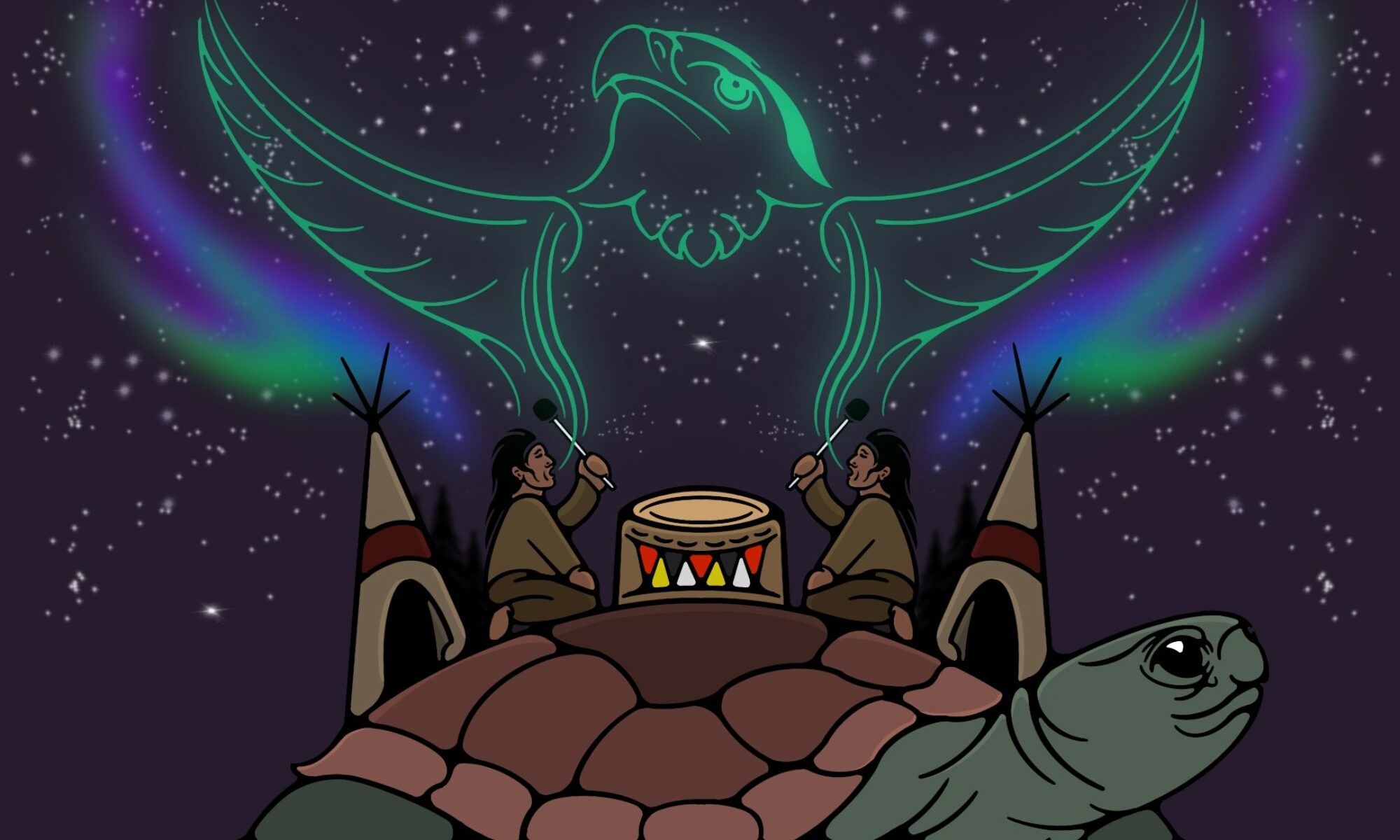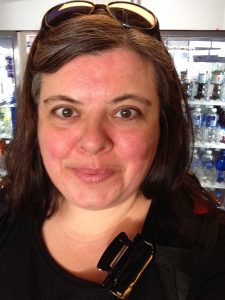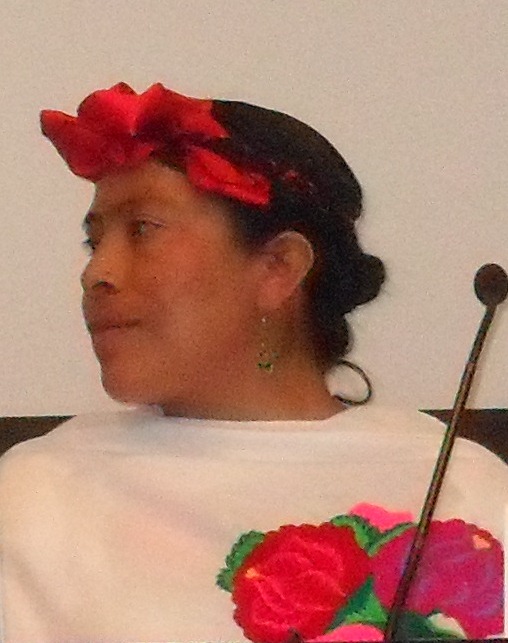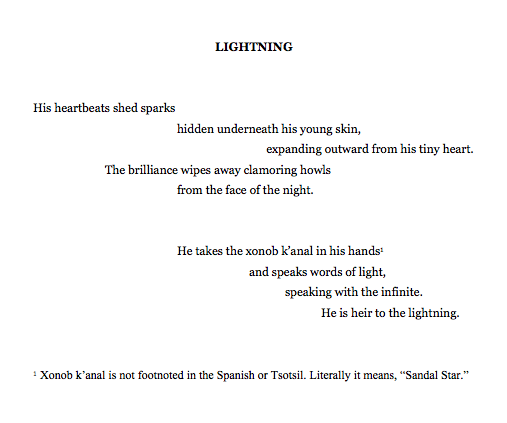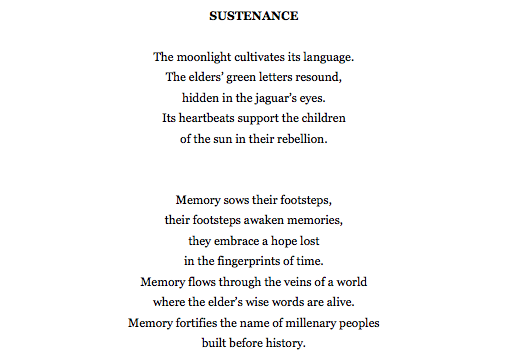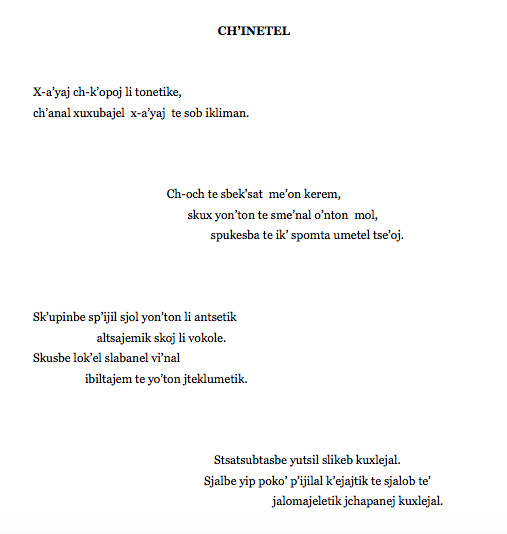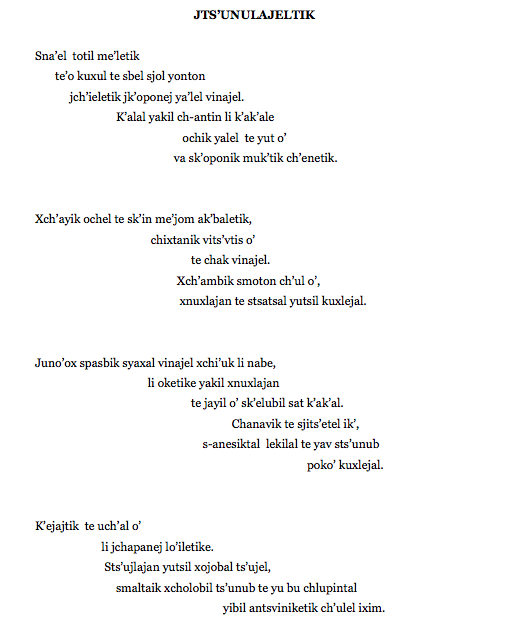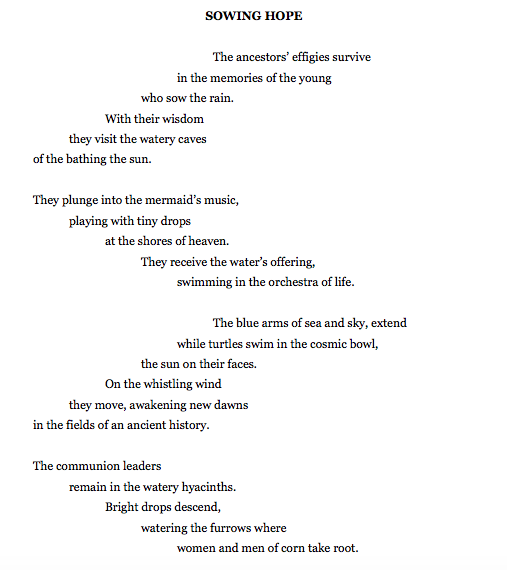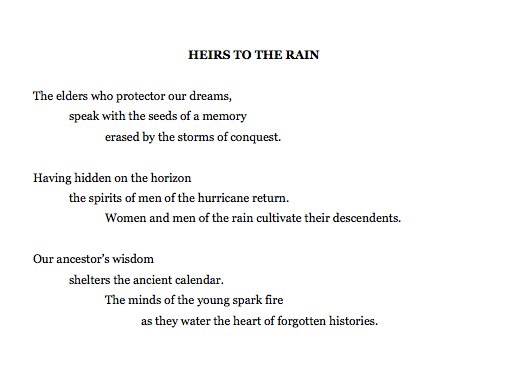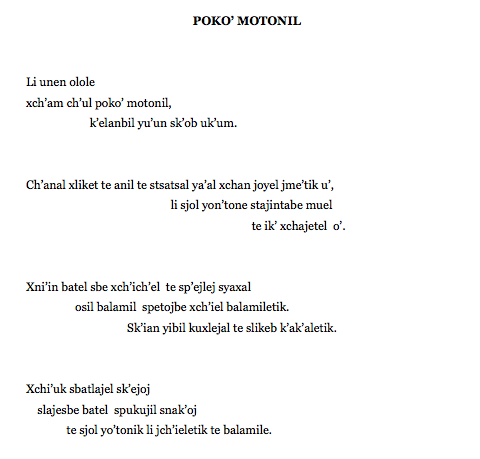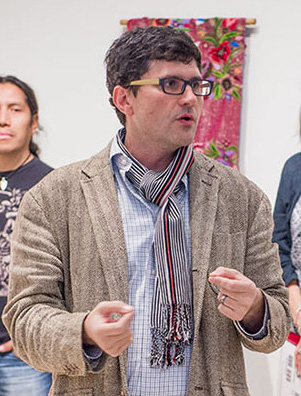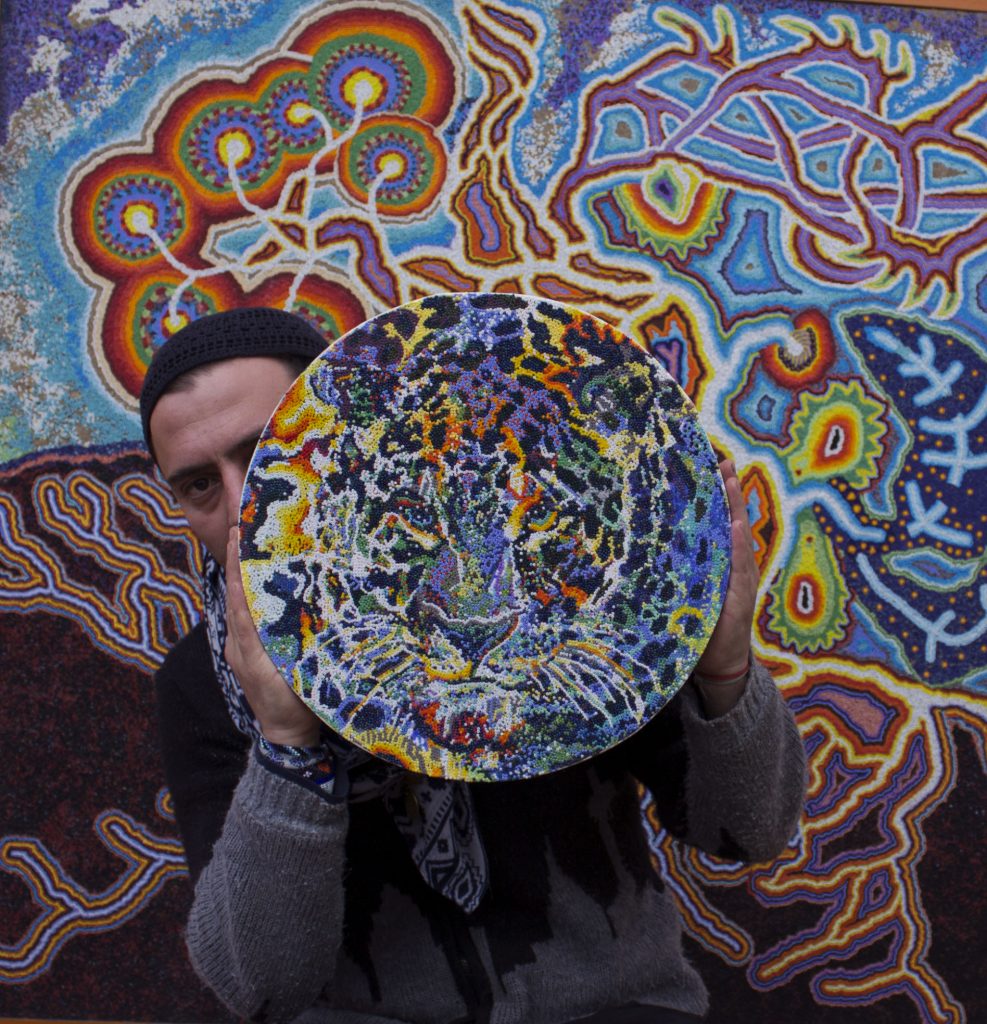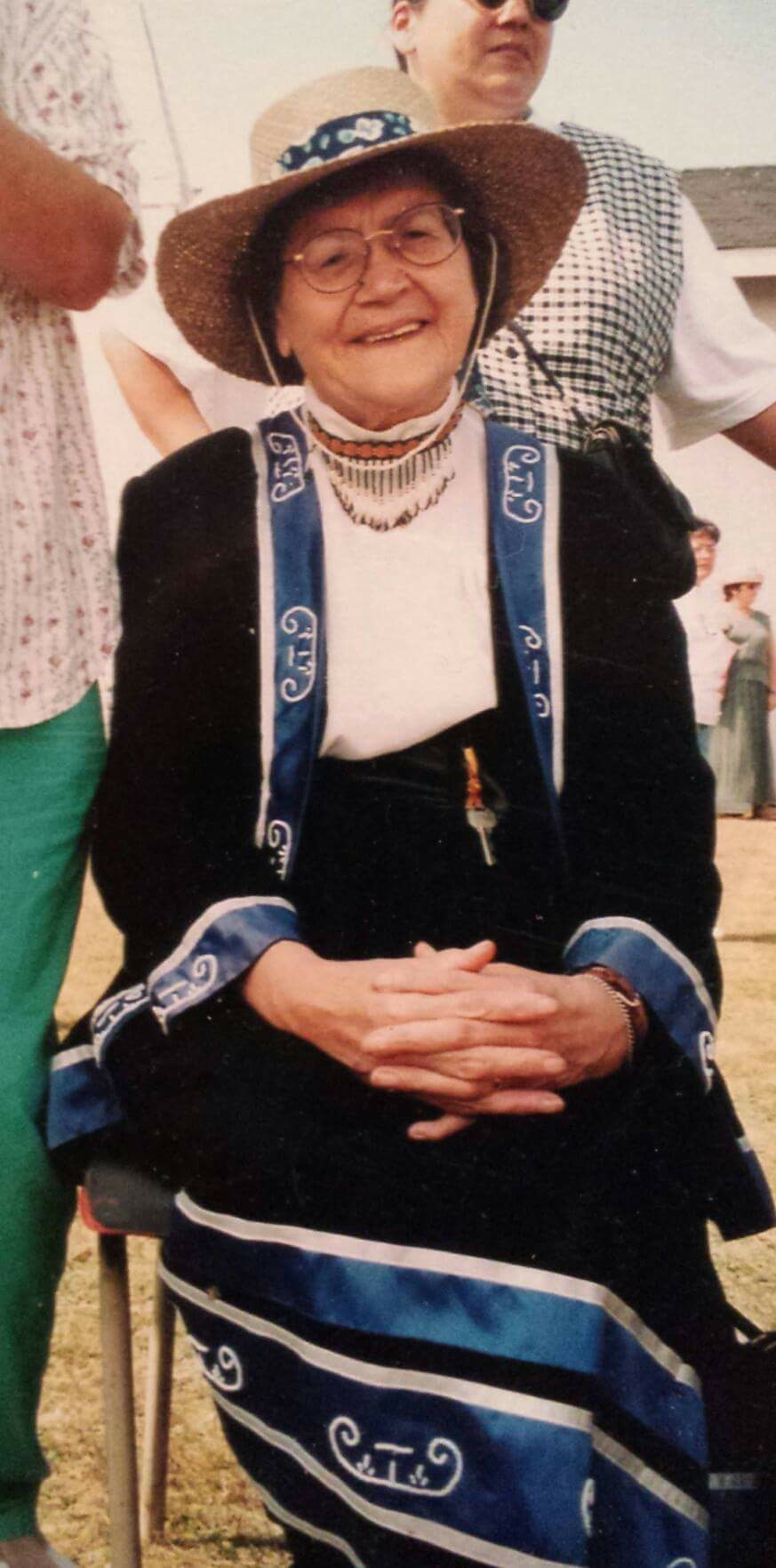 Rita Joe is a Mi’kmaq writer born in We’koqma’q, Cape Breton, Nova Scotia, Canada, in 1932. Joe was orphaned very young and raised by various extended family members and foster families until she was taken to residential school in Shubenacadie, Nova Scotia. From there, she worked in the caring professions in Halifax and Boston. Joe married, had eight children and raised two others. She started writing poetry in the sixties and published her first book, Poems of Rita Joe, in 1978. For her later years, she lived in Eskisoqnik on Cape Breton Island, where she was an educator, songwriter, artist, poet and elder. Along with various honorary doctorates, Joe also received the Order of Canada (1989) and a National Aboriginal Achievement Award (1997). She passed away in 2007.
Rita Joe is a Mi’kmaq writer born in We’koqma’q, Cape Breton, Nova Scotia, Canada, in 1932. Joe was orphaned very young and raised by various extended family members and foster families until she was taken to residential school in Shubenacadie, Nova Scotia. From there, she worked in the caring professions in Halifax and Boston. Joe married, had eight children and raised two others. She started writing poetry in the sixties and published her first book, Poems of Rita Joe, in 1978. For her later years, she lived in Eskisoqnik on Cape Breton Island, where she was an educator, songwriter, artist, poet and elder. Along with various honorary doctorates, Joe also received the Order of Canada (1989) and a National Aboriginal Achievement Award (1997). She passed away in 2007.
Joe wrote in both Mi’kmaq and English using a very simple language. Her poems are deeply personal, reflecting on her private life, Indigenous identity, Mi’kmaq beliefs, traditions, and racism in Canadian society. Four of the poems translated here are from her first book and appear in We Are the Dreamers: Recent and Early Poetry (Breton Books, 1999). All were published bilingually, except the preface. (by Sophie M. Lavoie, translator)
❁❁❁
I am the Indian
And the burden
Lies yet with me.
_______________________
The invisible line of the burden is the central idea which keeps banging against my head and cannot drop unless I am satisfied. The satisfaction does not seem to materialize with each problem I try to conquer. The minor self-war has turned into a mountain, I cannot reach the top. The top being my own satisfied conclusion.
That I think is what keeps me going, the day to day problem solving, even looking for it. Like tearing my own poetry apart, meandering into different directions, pecking there or just looking, the many trails too many to take on. But when another day comes there is that spirit rising again to take on any cause just to see if it can be slowed, dumped or won over. The tired body now broken, the spirit hanging on just so it can be pushed to the limit, if not for me but others, the endless trail into another century, then maybe, just maybe…
❁❁❁
Poem 6
Wen net ki’l?
Pipanimit nuji-kina’muet ta’n jipalk.
Netakei, aq i’-naqawey;
Koqoey?
Ktikik nuji-kina’masultite’wk kimelmultijik.
Na epas’si, taqawajitutm,
Aq elui’tmasi
Na na’kwek.
Espi-kjijiteketes,
Ma’jipajita’siw.
Espitutmikewey kina’matneweyiktuk eyk,
Aq kinua’tuates pa’ qlaiwaqnn ni’n nikmaq.
**
Who are you?
Question from a teacher feared.
Blushing, I stammered
What?
Other students tittered.
I sat down forlorn, dejected,
And made a vow
That day
To be great in all learnings,
No more uncertain.
My pride lives in my education,
And I will relate wonders to my people.
❁❁❁
Poem 10
Ai! Mu knu’kwaqnn,
Mu nuji-wi’kikaqnn,
Mu weskitaqawikasinukul kisna
mikekni-napuikasinukul
Kekinua’tuenukul wlakue’l
pa’qalaiwaqnn.
Ta’n teluji-mtua’lukwi’tij nuji-
kina’mua’tijik a.
Ke’ kwilmi’tij,
Maqamikewe’l wisunn,
Apaqte’l wisunn,
Sipu’l;
Mukk kasa’tu mikuite’tmaqnmk
Ula knu’kwaqnn.
Ki’ welaptimikl
Kmtne’l samqwann nisitk,
Kesikawitkl sipu’l.
Ula na kis-napui’kmu’kl
Mikuite’tmaqanminaq.
Nuji-kina’masultioq,
we’jitutoqsip ta’n kisite’tmekl
Wisunn aq ta’n pa’qi-klu’lk,
Tepqatmi’tij L’nu weja’tekemk
weji-nsituita’timk.
**
Aye! no monuments,
No literature,
No scrolls or canvas-drawn pictures
Relate the wonders of our yesterday.
How frustrated the searchings
of the educators.
Let them find
Land names,
Titles of seas,
Rivers;
Wipe them not from memory.
These are our monuments.
Breathtaking views-
Waterfalls on a mountain,
Fast flowing rivers.
These are our sketches
Committed to our memory.
Scholars, you will find our art
In names and scenery,
Betrothed to the Indian
since time began.
❁❁❁
Poem 14
Kiknu na ula maqmikew
Ta’n asoqmisk wju’sn kmtnji’jl
Aq wastewik maqmikew
Aq tekik wju’sn.
Kesatm na telite’tm L’nueymk,
Paqlite’tm, mu kelninukw koqoey;
Aq ankamkik kloqoej
Wejkwakitmui’tij klusuaqn.
Nemitaq ekel na tepknuset tekik wsiskw
Elapekismatl wta’piml samqwan-iktuk.
Teli-ankamkuk
Nkutey nike’ kinu tepknuset
Wej-wskwijnuulti’kw,
Pawikuti’kw,
Tujiw keska’ykw, tujiw apaji-ne’ita’ykw
Kutey nike’ mu pessipketenukek
iapjiweyey.
Mimajuaqnminu siawiaq
Mi’soqo kikisu’a’ti’kw aq nestuo’lti’kw.
Na nuku’ kaqiaq.
Mu na nuku’eimukkw,
Pasik naqtimu’k
L’nu’ qamiksuti ta’n mu nepknukw.
**
Our home is this country
Across the windswept hills
With snow on fields.
The cold air.
I like to think of our native life,
Curious, free;
And look at the stars
Sending icy messages.
My eyes see the cold face of the moon
Cast his net over the bay.
It seems
We are like the moon-
Born,
Grow slowly,
Then fade away, to reappear again
In a never-ending cycle.
Our lives go on
Until we are old and wise.
Then end.
We are no more,
Except we leave
A heritage that never dies.
❁❁❁
Poem 19
Klusuaqnn mu nuku’ nuta’nukul
Tetpaqi-nsitasin.
Mimkwatasik koqoey wettaqne’wasik
L’nueyey iktuk ta’n keska’q
Mu a’tukwaqn eytnukw klusuaqney
panaknutk pewatmikewey
Ta’n teli-kjijituekip seyeimik
Espe’k L’nu’qamiksuti,
Kelo’tmuinamitt ajipjitasuti.
Apoqnmui kwilm nsituowey
Ewikasik ntinink,
Apoqnmui kaqma’si;
Pitoqsi aq melkiknay.
Mi’kmaw na ni’n;
Mukk skmatmu piluey koqoey wja’tuin.
**
Words no long need
Clear meanings.
Hidden things proceed from a lost legacy.
No tale in words bares our desire, hunger,
The freedom we have known.
A heritage of honour
Sustains our hopes.
Help me search the meaning
Written in my life,
Help me stand again
Tall and mighty.
Mi’kmaw I am;
Expect nothing else from me.
❁❁❁
Wenmajita’si
Kiskuk eksitpu’kek alasutmay
Etawey kisi wi’kiken
Etawey kisi ankita’sin
Etawey kiijka’ mlkikno’ti
Ma’w kitu’-kinua’tekey aq kekina’muey
We’jitutoqsip mu i’muann
Ankite’imuloqop msit
Siaw-lukutikw nutqo’itioq
Kisa’tutoqsip na.
**
I am filled with grief
Today, this morning I prayed
I ask to write a little longer
I ask if I may be able to think
I ask for a small strength
I still want to show, teach.
You will find when I am gone
I thought about all of you
Continue the work, you young people
You can do it.
PDF: Rita Joe poems English/Mi’kmaq
THE TRANSLATOR
Sophie M. Lavoie is Associate Professor and Chair of the Department of Culture and Media Studies at the University of New Brunswick in Fredericton, Canada, where she teaches language, literature, film and culture classes. She has published various academic articles in scholarly on Central-American women’s literature, among other topics, in French, English and Spanish. With Hugh Hazelton, she was cotranslator into English of The Vertical Labyrinth by Argentinean poet Nela Rio, she translated the book of poetry We Are the dreamers by Mi’kmaq poet Rita Joe into French, and she has a forthcoming translation of the autobiography of the two spirit cri and ojibwe elder, Ma-Nee Chacaby, also into French.
